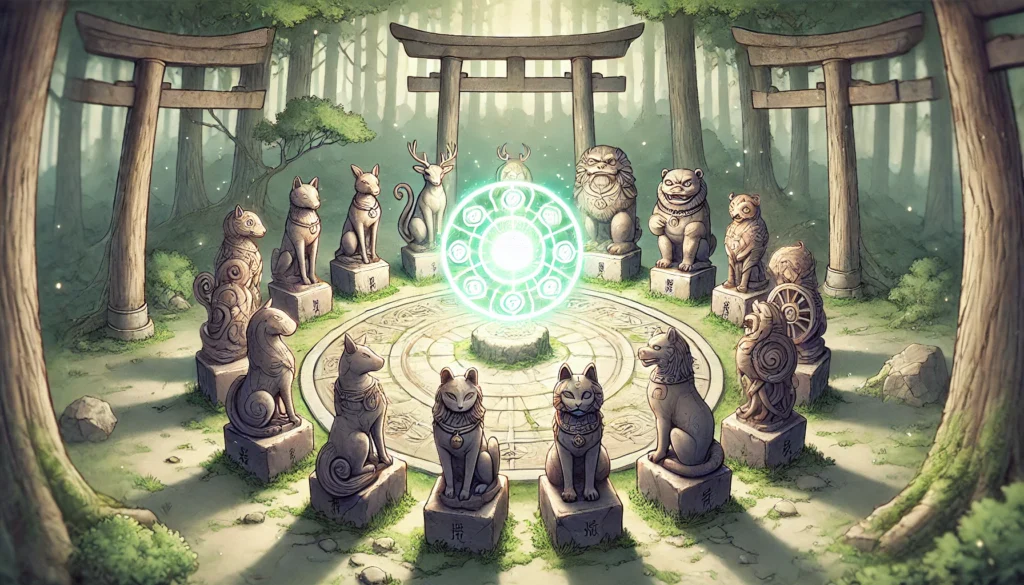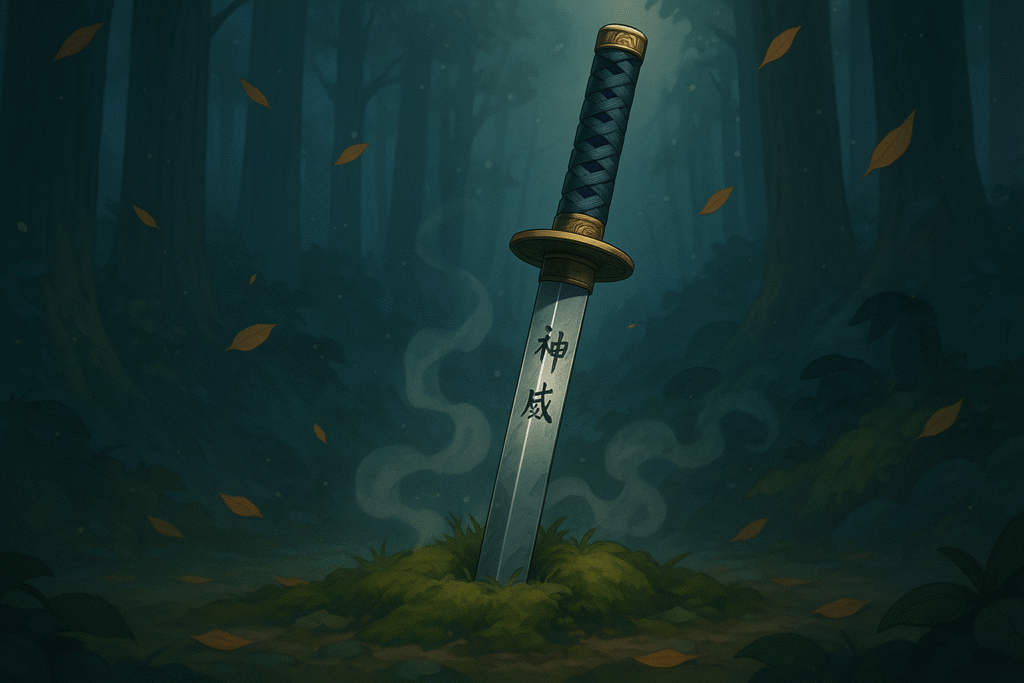Have you ever wondered why the Year of the Dragon feels so significant in Japan? Or why some Japanese people consider certain years more auspicious for marriages or business ventures? The answer lies in the fascinating world of the Japanese zodiac—a centuries-old system that continues to influence modern Japanese culture in surprising ways.
The Essence of Japanese Zodiac: More Than Just Animal Signs
The Japanese zodiac (十二支, jūnishi) represents far more than decorative animals on New Year’s cards. Unlike Western astrology that changes monthly, the Japanese zodiac follows a 12-year cycle, with each year represented by a specific animal with distinct personality traits and characteristics. This ancient calendar system has guided important life decisions in Japan for centuries.
Dating back to the 4th-5th centuries when it was adopted from China, the Japanese zodiac (干支, eto) has evolved into a distinct cultural tradition with its own interpretations and applications. While similar to Chinese astrology, the Japanese system features subtle differences—such as using the wild boar (inoshishi) instead of the pig found in Chinese zodiac traditions.
Whether you’re planning a trip to Japan during New Year celebrations or simply curious about this fascinating aspect of Japanese culture, understanding the zodiac animals and their significance opens a window into traditional Japanese beliefs about personality, compatibility, and fate.
The Story Behind the Japanese Zodiac Order
Every cultural tradition has its origin story, and the Japanese zodiac is no exception. According to popular legend, the Jade Emperor (or Buddha in some versions) invited all animals to a grand race. The first twelve to arrive would earn a place in the zodiac calendar, with their order determined by their finishing position.
The clever rat rode on the ox’s back before jumping ahead at the last moment to secure first place. The diligent ox came second, followed by the tiger, rabbit, dragon, snake, horse, sheep, monkey, rooster, dog, and finally, the boar. This sequence established the traditional order of the Japanese zodiac signs that continues to this day.
This mythological race explains not only the order but also some of the personality traits associated with each animal. For instance, the rat’s resourcefulness, the ox’s reliability, and the dragon’s magnificence all reflect their performance in this legendary contest.
The 12 Japanese Zodiac Signs and Their Characteristics
Each animal in the Japanese zodiac calendar embodies distinct personality traits and characteristics. Your birth year determines which animal influences your personality, strengths, and potential challenges according to traditional Japanese astrology.
1. Rat (子, Ne): The Intelligent Pioneer (1912, 1924, 1936, 1948, 1960, 1972, 1984, 1996, 2008, 2020)
The Rat holds the coveted first position in the Japanese zodiac cycle. People born in Rat years tend to be:
- Quick-witted and adaptable
- Charming and sociable
- Strategic thinkers with natural leadership abilities
- Resourceful problem-solvers
In Japanese culture, the Rat symbolizes prosperity and fertility due to its reproductive capacity. Those born under this sign often excel in business and creative pursuits, leveraging their sharp minds and social intelligence to navigate challenges.
A common Japanese saying about Rat people: “鼠の知恵” (Nezumi no chie) meaning “the wisdom of the rat”—acknowledging their clever nature and quick thinking.
2. Ox (丑, Ushi): The Reliable Powerhouse (1913, 1925, 1937, 1949, 1961, 1973, 1985, 1997, 2009, 2021)
The steadfast Ox represents:
- Diligence and determination
- Reliability and trustworthiness
- Methodical approach to challenges
- Patient persistence
In Japanese agricultural tradition, the ox was essential for rice cultivation, making it a symbol of hard work and the rewards that follow. Ox-born individuals are often the dependable foundation of their families and workplaces, providing stability and consistent effort.
3. Tiger (寅, Tora): The Courageous Leader (1914, 1926, 1938, 1950, 1962, 1974, 1986, 1998, 2010, 2022)
The powerful Tiger embodies:
- Courage and boldness
- Charismatic leadership
- Passionate enthusiasm
- Strong sense of justice
Tiger people attract followers with their magnetic personalities and bold vision. In Japanese folklore, tigers are often portrayed as protective forces against evil spirits, reflecting the Tiger-born individual’s instinct to defend others and fight for righteous causes.
4. Rabbit (卯, U): The Graceful Diplomat (1915, 1927, 1939, 1951, 1963, 1975, 1987, 1999, 2011, 2023)
The elegant Rabbit represents:
- Refinement and artistic sensibility
- Intuitive wisdom
- Diplomatic skill
- Good fortune
In Japanese culture, rabbits are associated with the moon and are considered symbols of good luck. Those born in Rabbit years often navigate social situations with grace and tact, making them excellent mediators and negotiators in both personal and professional contexts.
5. Dragon (辰, Tatsu): The Magnificent Visionary (1916, 1928, 1940, 1952, 1964, 1976, 1988, 2000, 2012, 2024)
The mythical Dragon embodies:
- Strength and good fortune
- Innovation and creativity
- Charismatic authority
- Mystical energy
Unlike Western depictions, dragons in Japanese culture are benevolent, rain-bringing deities. Dragon years are considered particularly auspicious for births and major life events. People born under this sign often possess natural authority and creative vision that sets them apart.
While exploring the magical qualities of the Dragon sign, you might also enjoy learning about other mystical aspects of Japanese culture in our article on unique Japanese words with deep meanings.
6. Snake (巳, Mi): The Wise Mystic (1917, 1929, 1941, 1953, 1965, 1977, 1989, 2001, 2013, 2025)
The enigmatic Snake represents:
- Wisdom and intuition
- Refined aesthetics
- Complex thinking
- Deep perceptiveness
In Japanese folklore, snakes are often associated with water deities and healing powers. Snake-born individuals typically possess deep insight and intuitive understanding, making them excellent counselors and strategists. Their quiet exterior often masks a rich and complex inner world.
7. Horse (午, Uma): The Free Spirit (1918, 1930, 1942, 1954, 1966, 1978, 1990, 2002, 2014, 2026)
The energetic Horse embodies:
- Freedom and independence
- Swift decision-making
- Vibrant social energy
- Adventure and exploration
Horse people value their autonomy while maintaining deep loyalty to their chosen companions. In Japanese culture, horses were traditionally symbols of travel, warfare, and nobility. Those born in Horse years often possess boundless energy and enthusiasm that draws others to them.
Want to explore Japan’s culture?
Discover Japan’s rich culture, traditions, and hidden gems with our expertly crafted guides. Get insider tips on travel, food, and history. All for free!
8. Sheep (未, Hitsuji): The Artistic Harmonizer (1919, 1931, 1943, 1955, 1967, 1979, 1991, 2003, 2015, 2027)
The gentle Sheep represents:
- Artistic sensitivity
- Compassion and empathy
- Peace and harmony
- Aesthetic appreciation
In Japanese tradition, sheep symbolize gentleness and group harmony. Those born under this sign often have a natural eye for beauty and an empathetic approach to relationships. Their creative insights and compassionate nature make them valued friends and community members.
9. Monkey (申, Saru): The Clever Innovator (1920, 1932, 1944, 1956, 1968, 1980, 1992, 2004, 2016, 2028)
The playful Monkey embodies:
- Wit and intelligence
- Adaptability and versatility
- Curiosity and problem-solving
- Social charm
Monkeys hold special significance in Japanese folklore as divine messengers. People born in Monkey years typically possess quick minds and an inventive approach to challenges. Their natural curiosity drives them to explore diverse interests and master multiple skills.
If you’re intrigued by the clever characteristics of the Monkey sign, you might enjoy challenging your linguistic agility with our collection of Japanese tongue twisters to improve your pronunciation skills.
10. Rooster (酉, Tori): The Meticulous Observer (1921, 1933, 1945, 1957, 1969, 1981, 1993, 2005, 2017, 2029)
The proud Rooster represents:
- Precision and attention to detail
- Honesty and directness
- Punctuality and reliability
- Confident self-expression
In Japanese culture, roosters are traditionally associated with punctuality and the dawn of new beginnings. Those born under this sign often have a keen eye for detail and a straightforward communication style. Their practical approach and work ethic make them valuable team members.
11. Dog (戌, Inu): The Loyal Defender (1922, 1934, 1946, 1958, 1970, 1982, 1994, 2006, 2018, 2030)
The faithful Dog embodies:
- Unwavering loyalty
- Strong sense of justice
- Protective instincts
- Honest communication
Dogs have been companions to humans in Japan for centuries, symbolizing protection and fidelity. People born in Dog years typically place high value on fairness and honesty, making them trusted friends and reliable partners. Their protective nature extends to all they consider part of their “pack.”
12. Boar (亥, I): The Valiant Warrior (1923, 1935, 1947, 1959, 1971, 1983, 1995, 2007, 2019, 2031)
The courageous Boar represents:
- Bravery and determination
- Generosity and sincerity
- Goal-oriented focus
- Honesty and straightforwardness
In Japanese mythology, the wild boar symbolizes courage and strength. Those born under this sign tend to be straightforward in their approach and steadfast in pursuing their goals. Their combination of strength and gentleness makes them both formidable opponents and loyal allies.
Japanese Zodiac in Modern Culture and Daily Life
Far from being an ancient relic, the Japanese zodiac remains deeply integrated into contemporary Japanese society. Its influence extends from New Year celebrations to everyday decision-making:
Seasonal Celebrations
During Japanese New Year (正月, Shōgatsu), the incoming zodiac animal takes center stage in decorations, greeting cards (年賀状, nengajō), and themed products. Temples and shrines offer special zodiac-themed amulets and fortunes for the coming year.
Personal Identity
Many Japanese people identify with their zodiac sign and its associated traits. Phrases like “I’m a Dragon” (私は辰年です, Watashi wa tatsu-doshi desu) are common ways to share something about your personality and birth year simultaneously.
Lucky Years and Life Planning
Certain years are considered especially fortunate or challenging depending on their relationship to one’s birth animal. Some couples plan pregnancies to coincide with auspicious years, particularly Dragon years, which are associated with strength and success.
Arts and Craftsmanship
The zodiac animals appear extensively in Japanese art forms from traditional ukiyo-e prints to contemporary manga and anime. Craftspeople create specialized zodiac-themed items such as ceramic figurines, textile designs, and calligraphy pieces.
How to Calculate Your Japanese Zodiac Sign
Determining your Japanese zodiac animal is straightforward for most years, but requires some attention around the Lunar New Year boundary:
- Identify your birth year according to the Gregorian calendar
- Use the following pattern, which repeats every 12 years:
- Rat: 1912, 1924, 1936, 1948, 1960, 1972, 1984, 1996, 2008, 2020
- Ox: 1913, 1925, 1937, 1949, 1961, 1973, 1985, 1997, 2009, 2021
- (Continue through all 12 animals)
Important note: The Japanese zodiac traditionally changes with the Lunar New Year, not January 1st. If you were born in January or early February, you might belong to the previous year’s sign. For precise determination, consult a lunar calendar for your birth year.
Compatibility in Japanese Zodiac Astrology
In traditional Japanese astrology, certain animal signs are considered naturally compatible or potentially challenging when paired. These relationships have historically influenced everything from business partnerships to marriage prospects:
Complementary Triads
The 12 animals are organized into four groups of three that share harmonious energy:
- First Triad: Rat, Dragon, Monkey (intelligent, successful, popular)
- Second Triad: Ox, Snake, Rooster (deep thinkers, wise, determined)
- Third Triad: Tiger, Horse, Dog (open-minded, free-spirited, loyal)
- Fourth Triad: Rabbit, Sheep, Boar (gentle, caring, peace-loving)
People whose signs fall within the same triad often find natural understanding and complementary approaches to life’s challenges.
Opposing Signs
Six pairs of animals stand directly opposite each other in the zodiac wheel:
- Rat vs. Horse
- Ox vs. Sheep
- Tiger vs. Monkey
- Rabbit vs. Rooster
- Dragon vs. Dog
- Snake vs. Boar
Traditional beliefs suggest these opposing pairs can experience either intense attraction or significant conflict due to their fundamental differences in worldview and approach.
Q&A: Common Questions About the Japanese Zodiac
Q: Is the Japanese zodiac the same as the Chinese zodiac? A: The Japanese zodiac originated from the Chinese system but has evolved with distinct cultural differences.
Q: Which Japanese zodiac sign is considered the luckiest? A: The Dragon is widely regarded as the most auspicious sign in the Japanese zodiac.
Q: How does the Japanese zodiac influence modern Japanese life? A: It affects everything from New Year celebrations to marriage timing and business decisions.
Q: Can my personality really be determined by my birth year? A: While zodiac traits offer interesting insights, they’re best viewed as one aspect of the complex factors that shape individual personality.
Q: How accurate is zodiac compatibility in relationships? A: Compatibility theories provide entertaining perspectives but shouldn’t override personal connection and communication in relationships.
Embracing the Wisdom of Japanese Zodiac Traditions
Whether you view the Japanese zodiac as an entertaining cultural tradition or a meaningful framework for understanding personality differences, its rich symbolism offers valuable insights into Japanese perspectives on character, fate, and harmony with natural cycles.
Next time you visit Japan during New Year celebrations, you’ll understand why certain animal motifs suddenly appear everywhere. Or perhaps you’ll recognize aspects of your own personality reflected in your zodiac animal’s traditional attributes.
For those interested in exploring more aspects of Japanese culture and language, check out our resources page for free guides covering everything from essential phrases to cultural traditions that will enhance your appreciation of this fascinating country.
What’s your Japanese zodiac sign? Understanding its traditional qualities might offer fresh perspective on your natural strengths and potential growth areas!
Love Japan? Stay in the Loop!
Get the best of Japan straight to your inbox: language, culture & travel insights!




